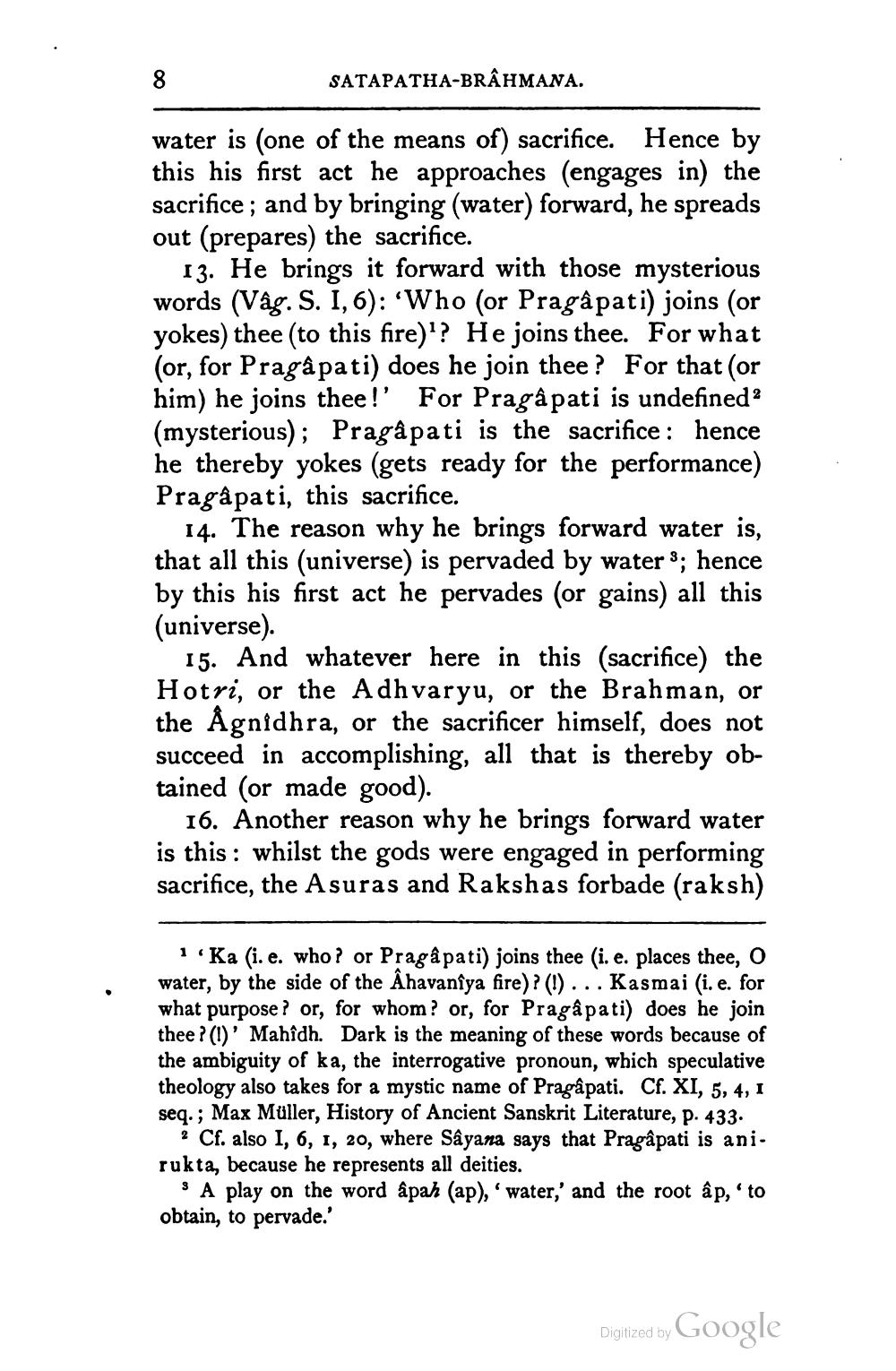________________
SATAPATHA-BRAHMANA.
water is (one of the means of) sacrifice. Hence by this his first act he approaches (engages in) the sacrifice; and by bringing (water) forward, he spreads out (prepares) the sacrifice.
13. He brings it forward with those mysterious words (Vâg. S. I, 6): 'Who (or Pragâpati) joins (or yokes) thee (to this fire)"? He joins thee. For what (or, for Pragâpati) does he join thee? For that (or him) he joins thee!' For Pragâ pati is undefined a (mysterious); Pragâpati is the sacrifice: hence he thereby yokes (gets ready for the performance) Pragâ pati, this sacrifice.
14. The reason why he brings forward water is, that all this (universe) is pervaded by waters; hence by this his first act he pervades (or gains) all this (universe).
15. And whatever here in this (sacrifice) the Hotri, or the Adhvaryu, or the Brahman, or the Agnidhra, or the sacrificer himself, does not succeed in accomplishing, all that is thereby obtained (or made good).
16. Another reason why he brings forward water is this: whilst the gods were engaged in performing sacrifice, the Asuras and Rakshas forbade (raksh)
1 Ka (i.e. who? or Pragâpati) joins thee (i. e. places thee, O water, by the side of the Ahavanîya fire)? (!) ... Kasmai (i.e. for what purpose? or, for whom? or, for Pragâpati) does he join thee? (l)' Mahîdh. Dark is the meaning of these words because of the ambiguity of ka, the interrogative pronoun, which speculative theology also takes for a mystic name of Pragâpati. Cf. XI, 5, 4, 1 seg.; Max Muller, History of Ancient Sanskrit Literature, p. 433.
? Cf. also I, 6, 1, 20, where Sâyana says that Pragâpati is ani. rukta, because he represents all deities.
SA play on the word âpah (ap), water,' and the root âp, to obtain, to pervade.'
Digitized by Google




